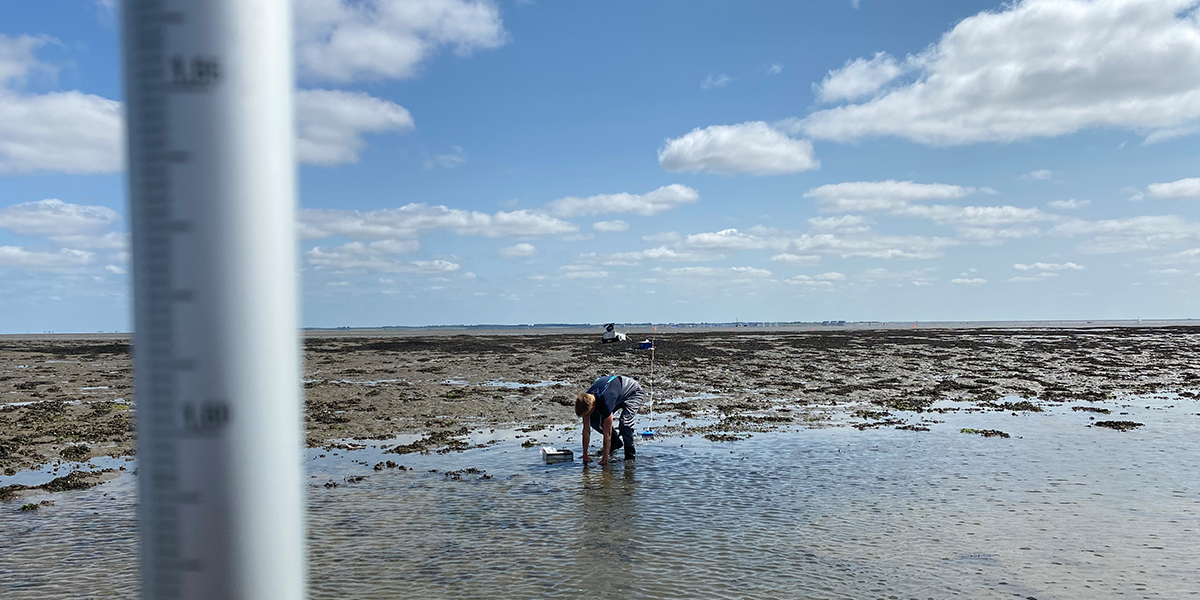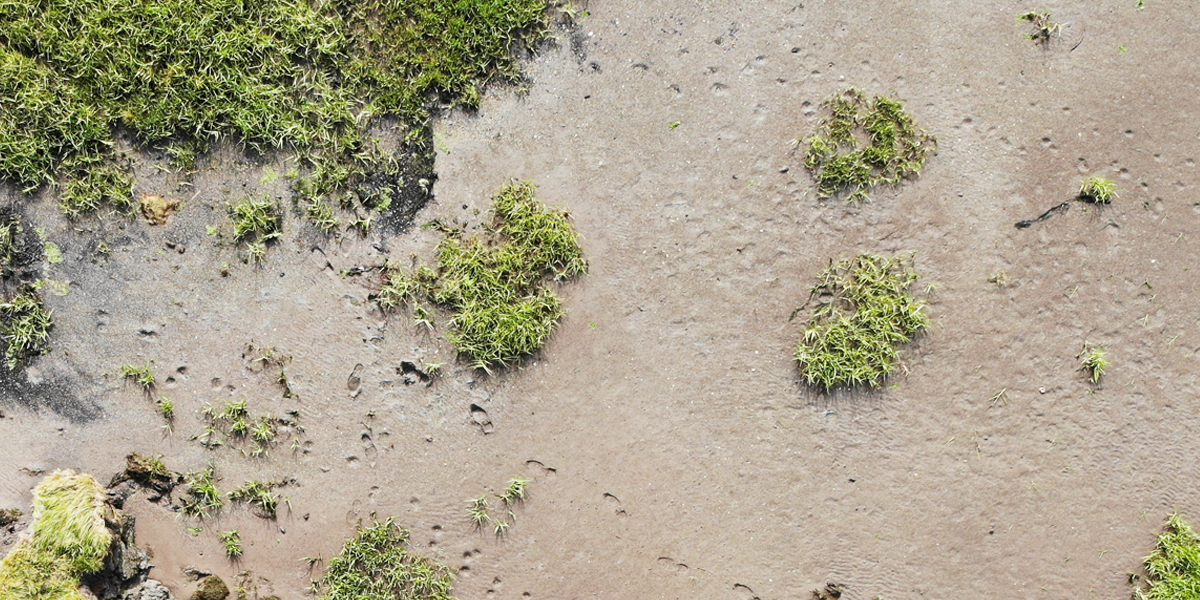Self-organization underlies the adaptive capacity of estuarine ecosystems
Many estuarine ecosystems are remarkably patched, forming regular patterns such as mussel beds, or of more complex patterns, such as the creek system in salt marshes. How do these patterns affect the ability of estuarine ecosystems to resist the dynamic marine environment (waves, currents, tides)?

Self-organisation shapes the resilience of intertidal communities
Spatial patterns in the form regular bands, round patches or drainage networks characterize the appearance of many estuarine ecosystems. We study how these self-organised patterns shapes the resilience of these ecosystems, in terms of their ability to recover after extreme events, such as storms, and their ability to compensate for gradually changing conditions, for instance the effects of climate change.
Patterns help restore ecosystems
Even though keystone estuarine communities such as mussel beds and seagrass beds display clear patterns, such typical characteristics are rarely harnessed in restoration projects. In the projects Mosselwad, Waddensleutels en Merces projects, we tried to use natural patterns to restore various ecosystems.
Patterns as a foothold for ecosystem establishment
Climate change forces us to rethink current coastal defence, leading to a re-appreciation of natural coastal ecosystems. But how do we re-establish natural ecosystems, while feedback processes are creating adverse conditions hampering ecosystem growth?
The MERCES and HPP projects show that copying natural patterns may play a crucial role in creating a foothold for establishing ecosystems.
